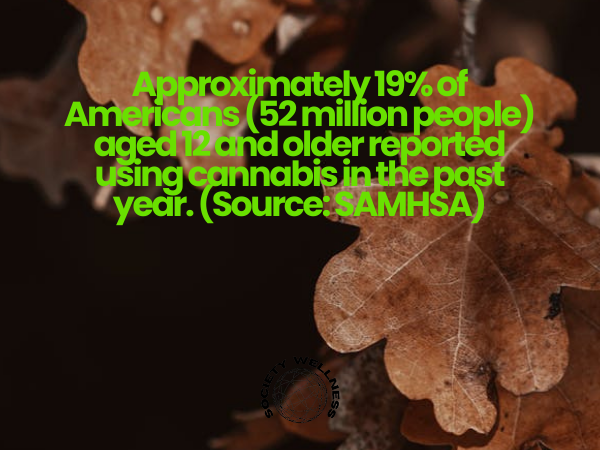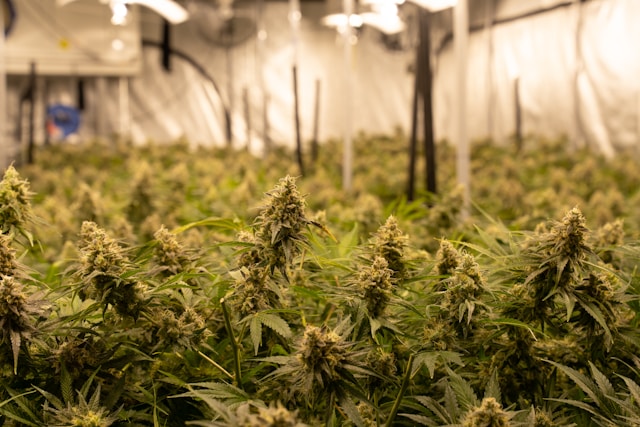As cannabis becomes increasingly normalized in society, its many compounds, including THCA (tetrahydrocannabinolic acid) and THC (tetrahydrocannabinol), have become points of interest in conversations around health and wellness. While both compounds come from the cannabis plant and are chemically related, they serve different purposes and produce vastly different effects on the body and mind.
For LGBTQ+ individuals, understanding these differences is particularly important. Cannabis use is disproportionately high in the LGBTQ+ community, often as a coping mechanism for stress, discrimination, and co-occurring mental health issues. This blog delves into THCA and THC, their respective properties, benefits, risks, and the implications for LGBTQ+ individuals navigating wellness or substance abuse challenges.
At LGBTQ Addiction Centers, we provide affirming, inclusive care to address substance use and mental health challenges. Programs like LGBTQ Partial Hospitalization Treatment, LGBTQ Substance Abuse Treatment, and LGBTQ Mental Health Programs are designed to help individuals achieve wellness and recovery in a safe, supportive environment.
What Is THCA?
THCA (Tetrahydrocannabinolic Acid) is a non-psychoactive compound found in raw, unheated cannabis. It is the precursor to THC and is present in freshly harvested cannabis plants. THCA only converts into THC through decarboxylation, a chemical process that occurs when cannabis is heated via smoking, vaping, or cooking.
Key Characteristics of THCA:
- Non-Psychoactive: Unlike THC, THCA does not produce the “high” commonly associated with cannabis use.
- Raw Cannabis Component: Found in raw cannabis, making it accessible through juicing, tinctures, or other non-heated methods.
- Emerging Medical Potential: Research suggests anti-inflammatory, neuroprotective, and anti-nausea properties.
Common Uses of THCA:
- Juicing raw cannabis for potential health benefits.
- Consuming non-heated cannabis tinctures or capsules designed to preserve THCA.
- Topical applications to manage localized pain or inflammation.
What Is THC?
THC (Tetrahydrocannabinol) is the psychoactive compound in cannabis that produces the “high” associated with its use. THC is created when THCA undergoes decarboxylation, either through heating or prolonged exposure to sunlight. THC binds to the brain’s CB1 receptors, causing mood-altering effects and changes in perception.
Key Characteristics of THC:
- Psychoactive: Produces euphoria, relaxation, or altered sensory experiences.
- Widely Recognized: The primary component associated with cannabis’ recreational and medicinal uses.
- Therapeutic Applications: Used for managing pain, appetite loss, nausea, and certain neurological conditions.
Common Uses of THC:
- Recreational use for its mood-altering effects.
- Medical use to manage conditions such as chronic pain, appetite loss, and chemotherapy-induced nausea.
- Available in various forms, including smoking, vaping, edibles, oils, and capsules.
Comparing THCA and THC: What’s the Difference?
| Aspect | THCA | THC |
|---|---|---|
| Psychoactivity | Non-psychoactive | Psychoactive, produces a “high” |
| Source | Found in raw, unheated cannabis | Found in heated or processed cannabis |
| Medical Potential | Anti-inflammatory, neuroprotective, anti-nausea | Pain relief, appetite stimulation, anti-nausea |
| Usage | Juicing, tinctures, topicals | Smoking, vaping, edibles, oils |
| Conversion | Converts to THC through decarboxylation | Already active after heating or processing |
Cannabis Use in the LGBTQ+ Community: A Closer Look
Higher Rates of Cannabis Use
LGBTQ+ individuals report significantly higher cannabis use compared to the general population. While some use cannabis for recreational or medicinal purposes, others may use it as a coping mechanism for challenges such as discrimination, stigma, or mental health struggles.
- Statistics:
- 43% of LGBTQ+ adults report using cannabis in the past year, compared to 16% of heterosexual adults. (Source: SAMHSA)
- LGBTQ+ youth are 2-4 times more likely to use cannabis than their heterosexual peers. (Source: NIDA)
Impact of Cannabis on Mental Health
While cannabis, particularly THC, may offer temporary relief from stress or anxiety, long-term use can exacerbate mental health symptoms or lead to dependency.
- THCA and Mental Health:
- Non-psychoactive, making it less likely to worsen anxiety or paranoia.
- Potentially beneficial for managing inflammation and neurological symptoms without impairing cognition.
- THC and Mental Health:
- May temporarily alleviate anxiety but can also trigger paranoia, depression, or dependency in susceptible individuals.
Risks of Cannabis Use in the LGBTQ+ Community
Dependency and Overuse
While often seen as less harmful than other substances, cannabis can still lead to dependency. LGBTQ+ individuals, already at higher risk for substance misuse, may be more likely to develop cannabis dependency due to minority stress and co-occurring mental health challenges.
Signs of Cannabis Dependency:
- Difficulty controlling use despite negative consequences.
- Using cannabis to escape emotions or manage stress.
- Withdrawal symptoms like irritability, insomnia, or loss of appetite when not using.
Health Risks of THC:
- Long-term use of high-THC products can affect memory, cognition, and emotional regulation.
- Smoking cannabis can harm respiratory health.
Considerations for THCA:
- THCA is generally considered safer due to its non-psychoactive properties but is less accessible and less researched than THC.
How LGBTQ Addiction Centers Support Recovery
For LGBTQ+ individuals struggling with cannabis dependency or its effects on mental health, LGBTQ Addiction Centers provide affirming, inclusive care to address both substance use and co-occurring challenges.
Key Programs and Services:
- LGBTQ Partial Hospitalization Treatment (PHP):
- Intensive therapy and medical supervision, ideal for individuals needing a structured environment to address substance use and mental health.
- LGBTQ Intensive Outpatient Program (IOP):
- Combines flexibility with therapy and support for those transitioning to independent living while in recovery.
- LGBTQ Outpatient Treatment Program (OP):
- Long-term support to help individuals maintain sobriety and manage triggers.
- LGBTQ Substance Abuse Treatment:
- Comprehensive care for individuals struggling with cannabis or other substance use.
- LGBTQ Mental Health Programs:
- Integrated care for co-occurring conditions like anxiety, depression, or PTSD.

Therapeutic Benefits of THCA: A Promising Option?
Although research on THCA is still emerging, it holds promise for addressing certain health challenges, particularly for individuals who prefer to avoid the psychoactive effects of THC.
- Anti-Inflammatory Effects:
- May help reduce inflammation associated with arthritis, autoimmune conditions, or chronic pain.
- Neuroprotective Properties:
- Could benefit individuals recovering from substance use disorders or managing neurological conditions.
- Non-Psychoactive Relief:
- Provides therapeutic benefits without impairing cognitive function, making it a safer option for individuals prone to anxiety or paranoia.
Making an Informed Decision: THCA, THC, or Abstinence?
THCA May Be a Better Fit If:
- You’re looking for non-psychoactive therapeutic benefits.
- You want to avoid dependency or cognitive impairment.
THC May Be Appropriate If:
- You’re managing chronic pain, nausea, or appetite issues with medical guidance.
- You use THC in moderation and understand its risks.
Consider Abstinence If:
- Cannabis use negatively affects your mental health or daily life.
- You’ve developed a dependency or feel unable to stop using.
Conclusion
Understanding the differences between THCA and THC is essential for making informed decisions about cannabis use, especially for LGBTQ+ individuals who face unique challenges related to mental health and substance use. Whether you’re exploring cannabis for therapeutic benefits or struggling with its effects, affirming care and education are crucial.
At LGBTQ Addiction Centers, we offer compassionate, evidence-based treatment to help individuals navigate substance use and mental health challenges. Through programs like LGBTQ Partial Hospitalization Treatment, LGBTQ Substance Abuse Treatment, and LGBTQ Mental Health Programs, we empower individuals to achieve wellness and recovery.
Contact us today at (888) 598-9510 to learn more about our services and take the first step toward a healthier, more fulfilling life. Together, we can help you thrive authentically.
FAQ on THCA vs. THC
What is THC?
THC (tetrahydrocannabinol) is the psychoactive compound in cannabis that produces the “high” associated with its use. It’s created when THCA is heated.
How are THCA and THC different?
THCA is non-psychoactive and found in raw cannabis, while THC is psychoactive and created when cannabis is heated. THCA is often used for its potential therapeutic benefits without altering cognitive function.
Can THCA help with mental health conditions?
Emerging research suggests THCA may have anti-inflammatory and neuroprotective properties, making it a promising option for managing conditions like anxiety or chronic inflammation without the psychoactive effects of THC.
Is THC harmful to mental health?
While THC may temporarily relieve stress or anxiety, excessive use can exacerbate symptoms like paranoia, depression, or dependency, especially in individuals already prone to mental health challenges.
Why is cannabis use higher in the LGBTQ+ community?
LGBTQ+ individuals face unique challenges, including minority stress and discrimination, which often lead to higher rates of substance use, including cannabis, as a coping mechanism.

